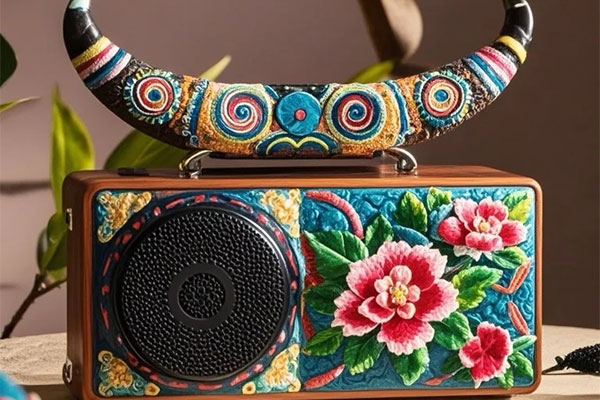Chinese Intangible Cultural Heritage - Qiang Embroidery
Introduction
Qiang embroidery is a traditional needlework craft passed down through generations of the Qiang ethnic group, primarily practiced in the Aba Tibetan-Qiang Autonomous Prefecture and Beichuan Qiang Autonomous County in Sichuan Province. This distinctive embroidery technique, renowned for its vibrant colors, bold lines, and rich patterns, was inscribed on China's National Intangible Cultural Heritage List in 2008. More than just an essential life skill for Qiang women, Qiang embroidery serves as a vital vessel of Qiang cultural heritage.
Historical Development
Origins and Evolution
- Ancient Qiang Period: Spread during ethnic migrations
- Ming-Qing Dynasties: Developed unique artistic style
- 20th Century: Faced inheritance crisis
- 21st Century: Revived through cultural preservation efforts
Key Documentation
- Book of Later Han: Records of Western Qiang mentions "weaving wool for clothing"
- Beichuan County Annals documents traditional embroidery customs
- Modern Collection of Qiang Embroidery Patterns systematically catalogs designs
Regional Characteristics
Primary Distribution Areas
| Region | Representative Areas | Artistic Features | Typical Patterns |
|---|---|---|---|
| Aba Prefecture | Mao County, Wenchuan | Strong color contrasts | Rhododendron, flame motifs |
| Mianyang City | Beichuan County | Precise compositions | Meanders, cloud patterns |
| Ganzi Prefecture | Danba County | Rustic style | Geometric designs |
Cultural Significance
- Totem Worship: Ram horn patterns reflect spiritual beliefs
- Historical Memory: Documents ethnic migration history
- Life Wisdom: Adapted to highland living environment
- Gender Culture: Essential skill for Qiang women
Technical Features
Core Techniques
- Material Selection:
- Base fabric: Handwoven hemp/cotton
- Threads: Silk/wool yarns
- Stitch Systems:
- Cross-stitch
- Flat stitch
- Overcast stitch
- Color Symbolism:
- Red: Symbolizes life
- Blue: Represents sky
- White: Signifies purity
Pattern Classification
- Nature: Flora, cloud motifs
- Animals: Rams, dragons
- Geometric: Meanders, swastikas
- Calligraphic: Auspicious symbols
Preservation Efforts
- Successor Training: Establishing embroidery workshops
- Technique Documentation: Publishing Compendium of Qiang Embroidery Techniques
- Innovative Development: Creating fashion products
- Industry Support: Forming cooperatives
- Cultural Promotion: Hosting Qiang Embroidery Festivals
Modern Development
- Integration with fashion design
- Cultural creative products
- Digital pattern database
- School inheritance programs
- International exhibitions
Through innovative designs and contemporary applications, Qiang embroidery is experiencing renewed vitality as an important showcase of Qiang cultural identity.







